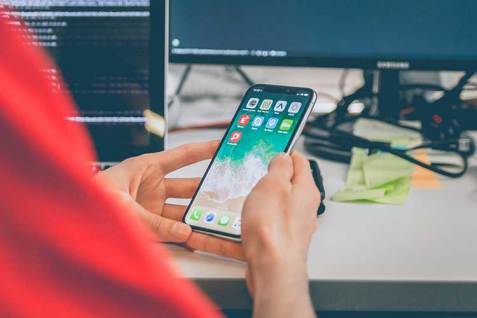Although we can't live without our smartphones these days, we need to be extremely careful because they could be much more vulnerable than we think.
Piracy is no longer just an intriguing topic for Hollywood or even a threat to big business.
Given the trove of information we all carry on our phones, whether locally or in the cloud, anyone could fall victim to cybercrime aimed at stealing secrets or installing viruses on our phones.
Some innovations have certainly made it more difficult to hack smartphones but there is always a way to deal damage, so it's best to know your enemy and where they are hiding if you want to avoid them.
Stay away from public Wi-Fi
You may not have realized it, but wireless hotspots in public places are an easy target for hackers.
This can include emails you send, login information you enter on social media, and even your financial data.
However, if you need to connect to public WIFI do so via a VPN. Private networks, which hide traffic packets, make hacking almost impossible.
Keep your smartphone up to date
Always keep your phone up to date with the latest operating system, as updates are often specifically designed to fix flaws.
For example, Google regularly releases security patches, as does Apple with its “minor updates” for iOS.
Lock your smartphone
Always enter a four- or six-digit passcode to access your device.
Access codes may not be very practical, but they prevent someone with bad intentions from accessing your data.
Consider setting an even longer passcode with numbers and letters. Not a big fan of passwords? Carefree.
Fingerprint scanning and face ID are quick and easy alternatives to digital typing.
Be careful on social media
Although it is good to use your real name on social media like Facebook and Twitter, avoid sharing a ton of revealing information about yourself on social media.
Avoid listing hometowns, specific addresses, specific workplaces, phone numbers, last names, and other details that hackers can use to track you.

Travel light
Do not store personal information, documents or files on your phone and limit the number of geotagged photos.
Make it a habit to keep your phone relatively intact by offloading pictures and documents to your computer and eliminating confidential financial, employer, and health-related emails.
Beware of spam and phishing
One of the easiest ways for hackers to access your information is through your inbox.
Phishing scams are designed to trick you into transferring access to your accounts.
Avoid clicking on links in promotional emails, opening suspicious attachments, or running app updates requested by email.
Keep in mind that banks and other large institutions will never ask you for your login details, password or banking details.
Use built-in protections for devices
They're not called “smartphones” for nothing. If your phone is lost or stolen, you can contain the damage by using device tracking services, such as Find My iPhone and Android's Find My Device.
These apps can locate your lost or stolen phone on a map and, in some cases, erase all data automatically.
These services can also ring your phone to help you locate a device that you have temporarily misplaced.
You can also have the phone delete all information after a certain number of incorrect password attempts.
Manage app permissions
Check the apps on your phone to determine if they have more privileges than necessary.
You can grant or deny permissions such as access to the camera, microphone, your contacts or your location.
If you are taking positive steps to protect your smartphone from hackers and intruders, you need to make sure that you have done everything possible to protect your personal information.
This makes personal data theft much less likely.
Protect your smartphone with this universal neck strap perfect for traveling:
Hide your data behind a VPN:
